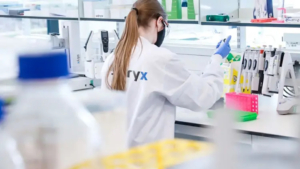DMD drug aids heart failure patients
Italfarmaco SpA's Givinostat, a small molecule histone deacetylase (HDAC) inhibitor in clinical testing against several forms muscular dystrophies, is also an option to treat heart failure with preserved ejection fraction (HFpEF), a form of congestive heart failure that affects 50% of heart failure patients.
In Science Translational Medicine, a team of cardiologists headed by Timothy McKinsey (Univ. of Colorado, Denver) report together with the Milan-based company that Givinostat (TF2357) improved cardiac function without lowering the blood pressure in a rat model with salt-induced high blood pressure that mimicks the disorder In HFpEF, which occurs in 50% of heart failure patients , the large chambers of the heart fail to relax properly. In a mouse model of age-related HFpEF, Givinostat (TF2357) alleviated diastolic dysfunction, a decline in performance of one or both ventricles. Until now, the cause of HFpEF is not known.
Although there are speculations that cardiac hypertrophy causes HFpEF, McKinsey’s team didn’t observe any effect of givinostat treatment on the sizes of the rats’ hearts. Instead, they noted that givinostat treatment improved the ability of heart muscle cells to relax. The cardiologists found that givinostat prevented muscle fibers from becoming modified by HDACs, which preserved relaxation capabilities. Interestingly, samples of heart muscle fibers from two patients with HFpEH had similar problems relaxing as observed in the rodents. According to the authors, HDAC-dependent muscle fiber modifications represent a previously unappreciated cause for HFpEF, paving the way to potential treatments.
Givinostat is in Phase II clinical trials for Becker’s Muscular Dystrophy and in in Phase III studies for Duchenne Muscular Dystrophy. The drug, originally patented in 1997, has been granted orphan drug designation in the European Union for the treatment of systemic juvenile idiopathic arthritis and polycythaemia vera.


 Sitryx Therapeutics
Sitryx Therapeutics
